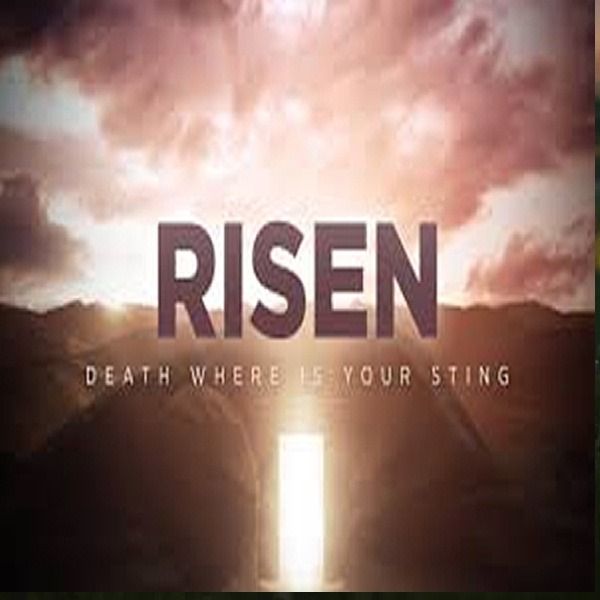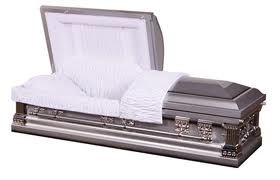There is a way to a better future for Funeral Service. In fact, for those who are willing to closely examine the Sacred Cows I truly believe we will rediscover that we make a vital contribution to society. I say that not only because I have believed it for more than 30 years but because I believe history and our own experience, especially history of our most recent past bears this out.
But I digress. Soren Kierkegaard once said,
“Life can only be understood
backwards; but it must be lived forwards.”
For us to be able to begin moving forward we must begin with our own Sacred Cow: The Funeral Service WorldView. And to understand that it is important to understand how it came to be.
In the fall of 1996 an article appeared in MIT’s Sloan Management Review that, for the first time, shed light on why organizations have so much trouble adapting to change or, as the author Edgar Schein Professor of Management at MIT’s Sloan School of Management, called it “learning.” And that is really the problem, isn’t it? We, as an industry, are having a problem with learning.
The Three Cultures of Management
Schein established that within every organization there were basically three cultures or communities:
- Operator Culture
- Engineering Culture
- Executive culture
For the sake of our discussion let me reclassify these as follows:
- Operator = Licensees and staff
- Engineering = Manufacturer vendors, suppliers and accountants
- Executive = Owners
Clearly in smaller and medium size firms operators and owners are mingled but the cultures still exist.
Schein pointed out that while these cultures all share the same space and are trying to solve the same problems they necessarily have different worldviews, different needs and different agendas. Schein made it clear, and I agree with him, that all of these differences were legitimate and many were necessary. The breakdown occurs only in the resultant “Silos” that occur because the 3 cultures don’t know how to talk with each other. In the end, however it is how they view people in the equation that is telling and also critical to breaking this cycle. Here is a grid showing how these cultures think:

It is important to note that engineers strive to engineer people “out” of solutions because they believe people make things messy. Hence, the successful advent of the “people free” show room of the 1970’s and the ongoing but unsuccessful reengineering of same over the succeeding years. I say unsuccessful because not only are people buying lower and lower quality caskets, fewer and fewer people are buying caskets at all. Of course, both the executive and the operator cultures embraced this innovation eagerly but for different reasons. For executives, it made them less dependent on the abilities of individual staff and for operators it allowed them to avoid being “seen” as sales people and being held responsible for results.
Cultural WorldViews
The Chart below shows how I envision the various stakeholders in funeral service overlaid on Schein’s cultural map.

Prior to the 1970’s all of these cultures functioned in reasonable harmony for one reason: We sold a “SIMPLE” product. A simple product is defined as one in which few decisions are required and buyer and seller are normally in mutual agreement. Up to that time the only real decision a customer needed to make was: “Which Casket”. As a result, the casket manufacturer became the dominant influence in the industry.
What has changed from that time is that we now sell a “COMPLEX” product. Not only is there a much larger number of variables involved including different roles between buyer and seller but a historic new variable has been introduced: In addition to “why buy from you?” is added “Why buy at all?”
The answer to this problem is a people solution and engineers cannot comprehend a people solution and executives would prefer it not be a people solution. Compounding this is the very nature of the culture of funeral service itself.
Our Universal Passive-Aggressive Culture is Our Achilles Heel
For a while now I have been helping my clients address this issue through the use of an instrument called the Organizational Culture Inventory developed by Human Synergistics. Human Synergistics is a world renowned company that measures cultures and cultural changes within organizations all over the world. They are working with me now to do a research study on funeral homes to see the impact of cultural change on performance. By measuring current cultural norms in a given organization and simultaneously defining how that organization envisions the ideal culture for high performance gaps are identified in a visual way. In this way members of that organization see those gaps and begin discussing, first, their own deficiencies and, second, how they can close those gaps. It can be very exciting.
The chart below is the actual result of a classic funeral home. I have done enough of these now to say that even in the most admired and supposedly best run funeral homes I expect to see results like these. Without going into detail which I will do in a future article, the primary culture here is Dependent. This means that most of the people in the organization are “waiting to be told what to do.” By the way this includes the owner. The secondary culture is Perfectionistic. You will be tempted to interpret this as “getting everything perfect.” That would be wrong. In fact, it means “working long hours and enduring.” Perfect seamless product delivery is measured in the Achievement scale.
The results here show me in some detail why change is so difficult in funeral service and among funeral staff. It is not the purpose of today’s article to go into that. Suffice to say when these issues are surfaced in healthy dialogue in contrast to the “Ideal” culture most people begin moving toward the ideal. For now it is enough that over the years funeral service has become a “waiting to be told what to do” culture (owners and staff alike). Traditionally, it has received its marching orders from the Casket Manufacturers (an engineering culture).

So, you have a “Waiting to be told what to do” culture waiting on an engineering culture to tell it what to do for a problem that doesn’t have and never did have an engineering solution. It has a people solution which both Executive and Engineering cultures are ill-equipped to solve.
But lest you point fingers let’s remember that it is in the nature of the Engineering culture to design people out of systems. Just as it is in your nature to wait to be told what to do. And you can hardly fault them for fitting their solution into your problem. A solution which you so eagerly embraced. Unfortunately, as time has proven the paradigm (sacred cow) that the casket is central to the value of a funeral has proven a false one. Which is why I am so dramatic when I tell my clients to get their noses out of the selection room. Your solution isn’t in there.
What would I do?
As the 2020 Project unfolds in the next few months resources will be made available. Right now you need to stop seeing merchandise sales a solution. If you are an owner, you need to prepare yourself to deal with the reality that you are contributing to the problem. Before you get your back up on that issue please be aware that only makes you normal. But awareness and willingness to accept responsibility for it makes you leagues above most business leaders. Some years ago I took the certification course for administering an executive 360 degree assessment. This particular assessment is considered one of the top 3 or 5 in the world and in my class was a senior level partner from Booz & co. I happened to sit next to her and when I found out her rank in her company I asked her why she was taking the course. She shared with me that they had done the assessment on the CEO of a Fortune 100 company and that it was so bad they decided the news had to be delivered by someone of her rank and she drew the short straw. She figured she better get certified before she met with him.
My point is we all have issues and while you Mr Business Owner have issues you are not nor will you ever be the Sole Contributor. But until you are willing to participate and change yourself there can be no hope for your organization to change. The good news is that there are many devices and instruments that make this non-threatening and fun and very much life enhancing. In fact, in every instance people take the lessons learned and apply it to their family and personal lives with significant success.
The solution to today’s issues are two:
1: Reorienting our purpose
We must create an inspiring vision around an inspiring purpose
2: Reorienting our culture
We must move from transactional to relational
These are people solutions. They will work. I have already seen them at work and they are both high performing as defined by customer response and sustainable as defined by customer loyalty.















